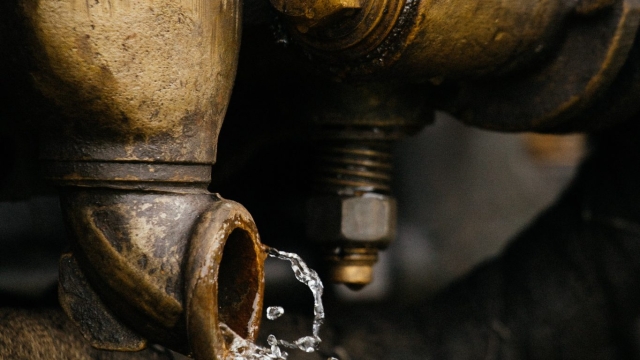Welcome to the world of plumbing, where the mastery of water flow lies in your hands. Whether you’re an aspiring DIY enthusiast or a seasoned professional, having a solid foundation in plumbing is essential. From fixing leaks and unclogging drains to installing new fixtures and maintaining a healthy plumbing system, there’s a myriad of tasks that require your attention. In this article, we’ll dive into some invaluable tips and tricks to help you navigate the complex world of plumbing with confidence and finesse. So, grab your toolbox and prepare to unleash the flow as we uncover the secrets of mastering the art of plumbing.
Common Plumbing Issues
-
Leaky Faucets: One of the most common plumbing issues homeowners encounter is a leaky faucet. The constant dripping not only wastes water but also adds to your water bill. Often, a worn-out rubber washer or a faulty seal may cause this problem. It’s advisable to replace these components to stop the leak.
-
Clogged Drains: Another prevalent plumbing problem is a clogged drain. Whether it’s your kitchen sink, bathroom shower, or toilet, a clog can disrupt your daily routine. In many cases, accumulated debris, like grease, food particles, or hair, is the culprit. A plunger or a drain snake can help dislodge the blockage and restore proper drainage.
-
Running Toilets: A running toilet can be an irritating and wasteful issue. If you hear water continuously running in the tank even when it’s not in use, a faulty flapper valve might be the cause. This valve controls the water flow between the tank and the bowl. Replacing or readjusting the valve can resolve the problem and save water.
Essential Tools for Every DIY Plumber
-
Wrench: A wrench is an indispensable tool for any DIY plumber. It allows you to tighten or loosen nuts, bolts, and fittings with ease. Make sure to have a set of adjustable wrenches in different sizes to tackle various plumbing tasks.
-
Pipe Cutter: When it comes to working with pipes, having a reliable pipe cutter is essential. This tool allows you to make clean and precise cuts in pipes of different materials, such as copper or PVC. Investing in a durable pipe cutter will ensure accurate and efficient installations or repairs.
-
Plunger: A plunger is a plumber’s best friend when it comes to unclogging drains and toilets. It creates suction to dislodge blockages and restore proper flow. Having a quality plunger on hand is crucial for tackling common plumbing issues quickly and effectively.
-
Pipe Wrench: For dealing with pipe connections, a pipe wrench is a must-have tool. This adjustable wrench has serrated jaws that provide a secure grip on pipes, making it easier to tighten or loosen them. A sturdy pipe wrench ensures a tight and leak-free joint.
-
Tape Measure: Accurate measurements are crucial in plumbing projects. Whether you’re installing new pipes, fittings, or fixtures, a tape measure will help ensure precise and proper placement. Choose a tape measure with both metric and imperial measurements for versatility.
-
Teflon Tape: Also known as plumber’s tape, Teflon tape is an essential item for creating a watertight seal between threaded connections. It is easy to use and prevents leaks by filling any gaps or imperfections. Having a roll of Teflon tape in your toolkit is a smart choice for any DIY plumber.

Remember, having the right tools not only makes your plumbing tasks easier but also ensures better results. Building a collection of essential plumbing tools will empower you to handle a wide range of plumbing projects confidently.
Effective Plumbing Maintenance Tips
Regular maintenance is essential to keep your plumbing system running smoothly and prevent costly repairs. Here are some effective tips to maintain your plumbing:
-
Keep drains clear: Avoid pouring grease, oil, or coffee grounds down the drain as they can clog the pipes over time. Use drain strainers to catch hair and debris, and clean them regularly to prevent blockages.
-
Check for leaks: Inspect your faucets, toilets, and pipes for any signs of leaks regularly. Even a small leak can waste a significant amount of water and lead to water damage. Repair or replace any faulty fixtures to prevent further problems.
-
Maintain water pressure: High water pressure can cause stress on your pipes and increase the risk of leaks. Use a pressure regulator to ensure the water pressure remains within a safe range. If you notice sudden changes in water pressure, it may indicate an underlying issue that needs professional attention.
By following these plumbing maintenance tips, you can avoid plumbing emergencies and prolong the lifespan of your plumbing system. Remember to address any issues promptly to prevent them from escalating into more significant problems.
